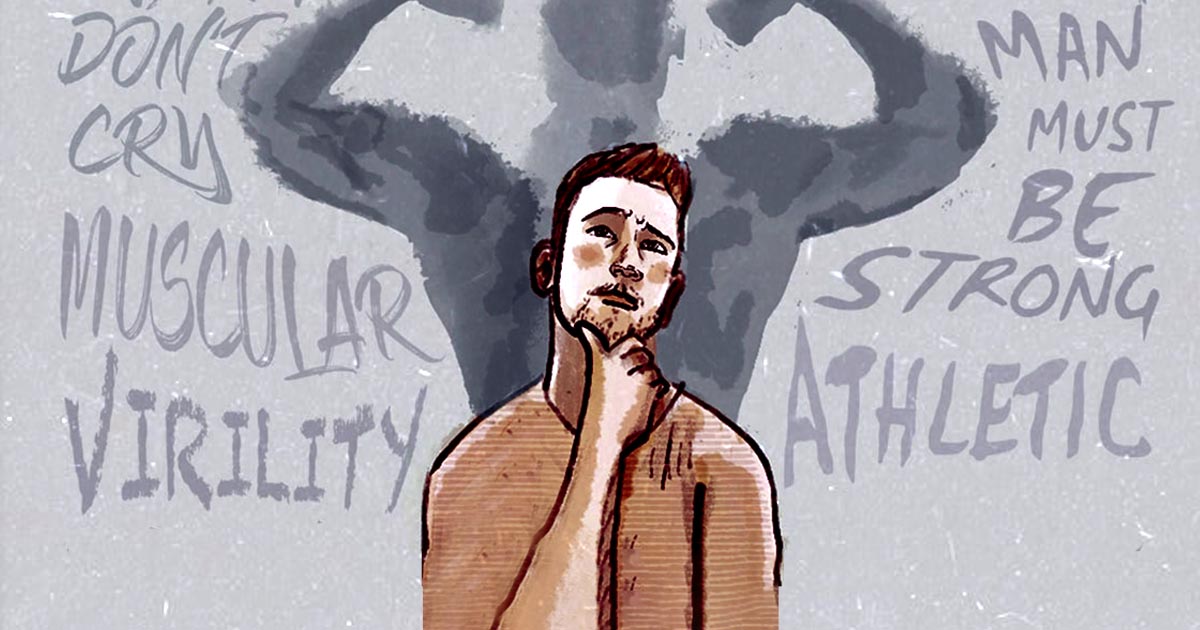Let’s dive into a topic that’s both important and way overdue—toxic masculinity. We’re talking about those outdated rules telling men to “man up” by being tough, emotionless, and always in control. But here’s the thing—those rules are not just old, they’re harmful. They hurt men and their relationships. So, how do we ditch this nonsense and help men be their best selves? Let’s explore!
What Exactly is Toxic Masculinity?
Toxic masculinity is like a set of handcuffs, chaining men to stereotypes that say they shouldn’t express emotions, show vulnerability, or ask for help. It pushes the idea that men must always dominate and never admit weakness. This pressure starts early and sticks around, affecting how men see themselves and how they interact with others.
Think about it: if a boy is told, “Real men don’t cry,” he learns to hide his feelings. Later in life, this can lead to emotional walls in relationships, where his partner feels shut out, and he feels misunderstood. It’s a lose-lose situation.
Why It’s a Big Deal in Relationships
Toxic masculinity doesn’t just hurt men—it takes a toll on their partners too. Imagine being in a relationship where your partner seems emotionally unavailable or overly aggressive because he’s been taught to suppress his feelings. That emotional disconnect can lead to frustration, misunderstandings, and even the end of the relationship.
Men, burdened by these toxic expectations, might feel like they can’t lean on their partners for support. They carry the weight of stress, anxiety, and unspoken fears alone, which can cause long-term harm to their mental health and the relationship’s health.
The Domino Effect of Toxic Masculinity
Here’s a quick snapshot of what toxic masculinity can lead to:
Emotional Bottling: Men might suppress emotions until they explode in unhealthy ways, like anger or withdrawal.
Strained Relationships: Emotional distance can lead to breakups or ongoing conflicts.
Mental Health Issues: Suppressing emotions is linked to higher risks of depression, anxiety, and even physical health issues.
Missed Opportunities for Intimacy: Being vulnerable deepens relationships, but toxic masculinity blocks this path.
Steps to Break Free and Build Better Relationships
Let’s flip the script and break down how we can help men—and their relationships—thrive.
1. Feel the Feels: It’s high time we made it okay for men to express their emotions openly. Encouraging men to talk about their fears, joys, and struggles makes relationships stronger. A simple “How are you really feeling?” can open the floodgates to honest, meaningful conversations.
2. Redefine “Manliness”: Being a man isn’t about hiding emotions or showing dominance. It’s about being real. Let’s celebrate qualities like empathy, kindness, and vulnerability. These aren’t weaknesses—they’re superpowers!
3. Normalize Therapy: Therapy shouldn’t be a last resort or a secret. It should be as routine as a health check-up. Partners can support men by encouraging therapy, even going together to work through challenges as a team.
4. Share the Load: Relationships thrive on partnership. Sharing responsibilities—whether it’s housework, parenting, or decision-making—eases the pressure on men to be the sole “provider” or “fixer.” It creates balance and mutual respect.
5. Educate Early: Teaching kids that it’s okay to cry, to be kind, and to ask for help can reshape the next generation’s view of masculinity. Schools and families play a crucial role in breaking these toxic patterns before they take root.
Why This Matters
Breaking free from toxic masculinity isn’t just about making men feel better—it’s about creating healthier, more authentic relationships. When men embrace their full emotional range, they connect better with their partners, friends, and even themselves. It’s about living a life where emotions aren’t seen as a weakness but as a beautiful part of being human.
Let’s Make the Change Together
It’s up to all of us—men, women, friends, families—to challenge these outdated norms and support men in becoming their best selves. By doing this, we’re not just helping men; we’re building a world where everyone can thrive in their relationships and personal lives.
So, here’s to a future where being a “real man” means being real—period. Let’s break those chains of toxic masculinity and help men (and their relationships) flourish!










Wow! I happen to fall in that category of “weak” men as my friends put it coz I simply talk out what I feel. I express my emotions openly at trust me I’m enjoying this life


My friends hurt in silence but there’s nothing I can do as I’m already classified as weak by them